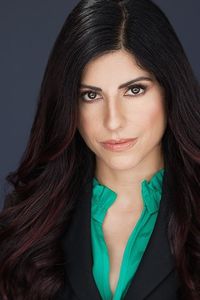Dina Najjar, a multifaceted and accomplished individual, is an award-winning actor and filmmaker who has made a significant impact in the entertainment industry. Born in Detroit to immigrant parents of Palestinian and Jordanian descent, she is a first-generation Arab American who proudly represents her cultural heritage.
As a skilled linguist, Dina is fluent in Arabic and has a passion for belly dancing. Her cultural roots are deeply embedded in her work, and she is dedicated to bringing diversity and authenticity to the screen and stage. With her unique blend of talent, charisma, and determination, Dina is often referred to as the "real-life Princess Jasmine with an edge."
Throughout her career, Dina has taken on a wide range of roles that showcase her remarkable acting abilities. Some of her most notable performances include playing Maya, a Syrian refugee, in the short film "Maya," which earned her the Best Actress Award at the 2018 University of Miami Canes Film Festival. She has also appeared in the recurring role of Nadja Shah, an alluring assassin, in season 2 of "The Family Business" on BET and Netflix, which debuted in the top 10.
Dina has also made a significant impact in children's entertainment, playing Dr. Dulce, a pediatric dentist, in Nickelodeon's Noggin Knows. Her most recent project, the feature film "The Refugee," has received widespread acclaim, earning her the Best Actress Award at the 2024 Golden Door International Film Festival. The film is now streaming on Prime Video and has been featured in Variety.
As an artist, Dina is committed to bringing diversity and representation to the screen and stage. Her mission is to tell important stories that inspire, empower, and include, while always leaving the viewer with a sense of hope. She strives to create complex and multifaceted female characters who overcome adversity and trauma, infusing her work with humor and authenticity.
Most importantly, Dina is dedicated to giving a voice to Palestinian and Arab stories that humanize their experiences rather than capitalizing on their trauma. She believes that it is essential to share these stories in a way that is respectful, authentic, and empowering, providing a platform for marginalized voices to be heard.


























